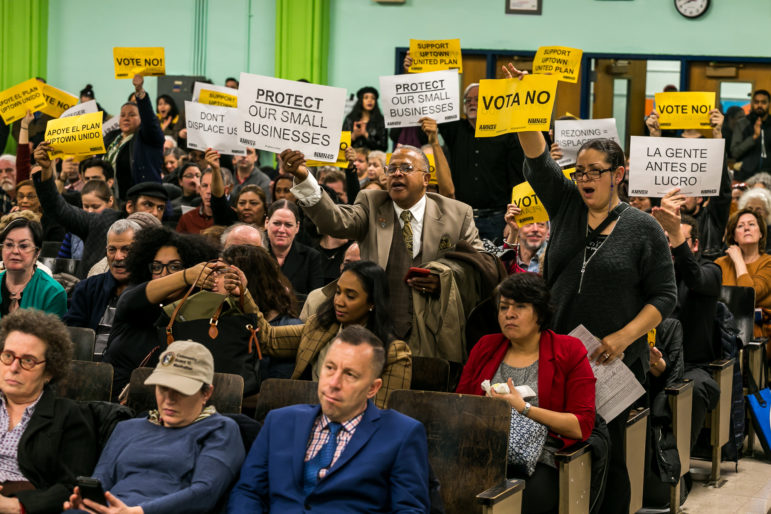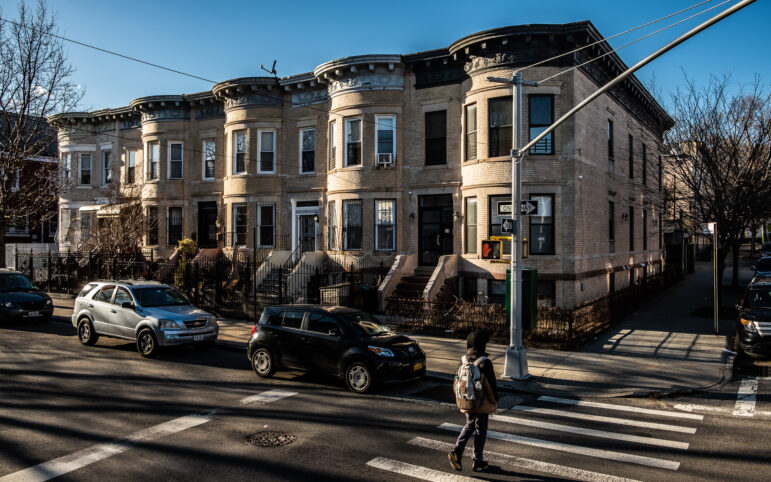The city’s welfare agency is not providing all of the language translation services required by law at many of its offices, thus making it harder for the Limited English Proficient (LEP) population to access benefits – a population that largely needs and qualifies for such benefits.
That’s according to a new report from Legal Services for New York City (LSNY), which claims that one out of four New Yorkers over the age of five does not speak English, or does not speak it well. “Because LEP communities are growing at a rapid rate and because LEP status is closely connected to poverty, food insecurity and lack of economic mobility, LEP persons are more likely to need critical public benefits,” the report says. “Language access services are vital services for LEP New Yorkers, immigrants and citizens alike, and when denied, can result in hunger, eviction, and other grave problems.”
Advocates, local elected officials and clients of the Human Resources Administration (HRA) gathered on the steps of City Hall last week to discuss the findings and urge HRA to improve its services.
The report is based on a survey of all 69 HRA centers citywide, conducted in June and July of this year, measuring compliance with Local Law 73, the Equal Access to Human Services Act of 2003, which requires HRA to provide language services to LEP clients. According to the report, only 26 percent of food stamp, Medicaid and public assistance offices offered all three of the basic language assistance services requested: posted signs in multiple languages, translated applications and bilingual staff. Fewer than two-thirds of the offices had an interpreter, and applications in Spanish were available at just 18 percent of HRA centers.
“The data in our report reveals that the problems our LEP clients face in accessing their benefits are a systemic issue,” said attorney Amy Taylor, the LSNY language access project coordinator and the report’s co-author. “Civil rights laws mandate the provision of language services for limited English proficient New Yorkers, and when the law is not followed, poor New Yorkers are unable to access the benefits they need to survive.”
HRA responded by saying that “making our programs accessible to people with limited English proficiency is a priority of this administration.” Spokeswoman Barbara Brancaccio did not want to discuss specific claims until the agency can conduct its own review of the findings.
“It is of great concern to us that these observations were made in June 2007, but have been withheld for the purpose of releasing a report, rather than working with the Agency to improve services to our clients if needed,” Brancaccio said in a statement released Wednesday. “The report was finally given to HRA yesterday afternoon and it still did not contain the specific results from the centers that were surveyed. We are eager to review the specific findings in order to ascertain whether they are accurate.”
Several LEP clients spoke at the press conference about challenges they faced in trying to apply for or keep benefits administered by HRA. LSNY client Wan Sin Ng of Chinatown lost her Medicaid coverage because she could not get recertification materials in her native language. “Sometimes I would wait there four or five hours and nobody can speak Cantonese,” she said through an interpreter. “But by the time it is our turn they would tell us there is no translator.”
Ng has since had a hearing and got her benefits back.
Erika Rodriguez, a mother of two from Ridgewood, Queens and one of many Make the Road by Walking members at the press conference, said through an interpreter that she lost public assistance because her caseworker didn’t speak Spanish and interpreters were rarely around. Her benefits were reinstated after a fair hearing this fall. “The signs say translation services are available, but they’re not,” Rodriguez said.
But the report points out that the lack of translation assistance at HRA centers is not a result of bad policy but of a breakdown in administrative procedures. In fact, several speakers credited the Bloomberg administration and HRA for their commitment to improving services for LEP clients. “The city has invested significant resources already,” said attorney Dimple Abichandani, director of program development at LSNY and report co-author. “The workers just don’t know about them.”
The report recommends that HRA hold each center accountable for compliance with language policies, monitor centers more closely, and train all center staff on language policies and procedures. It also recommends setting up a central public complaint system so that people can give feedback without fear of retaliation; designating a language policy coordinator at each center and making that person known to both staff and the public; and creating a citywide taskforce of such coordinators so they can share best practices and resources.
Advocates had previously challenged the lack of translation services at HRA centers in a class action lawsuit settled in 1999. Randal Jeffrey, director of the general legal services unit at New York Legal Assistance Group, worked on the case, and said at the press conference: “It’s a shame that eight years after we filed the lawsuit people are experiencing the exact same problems.”








